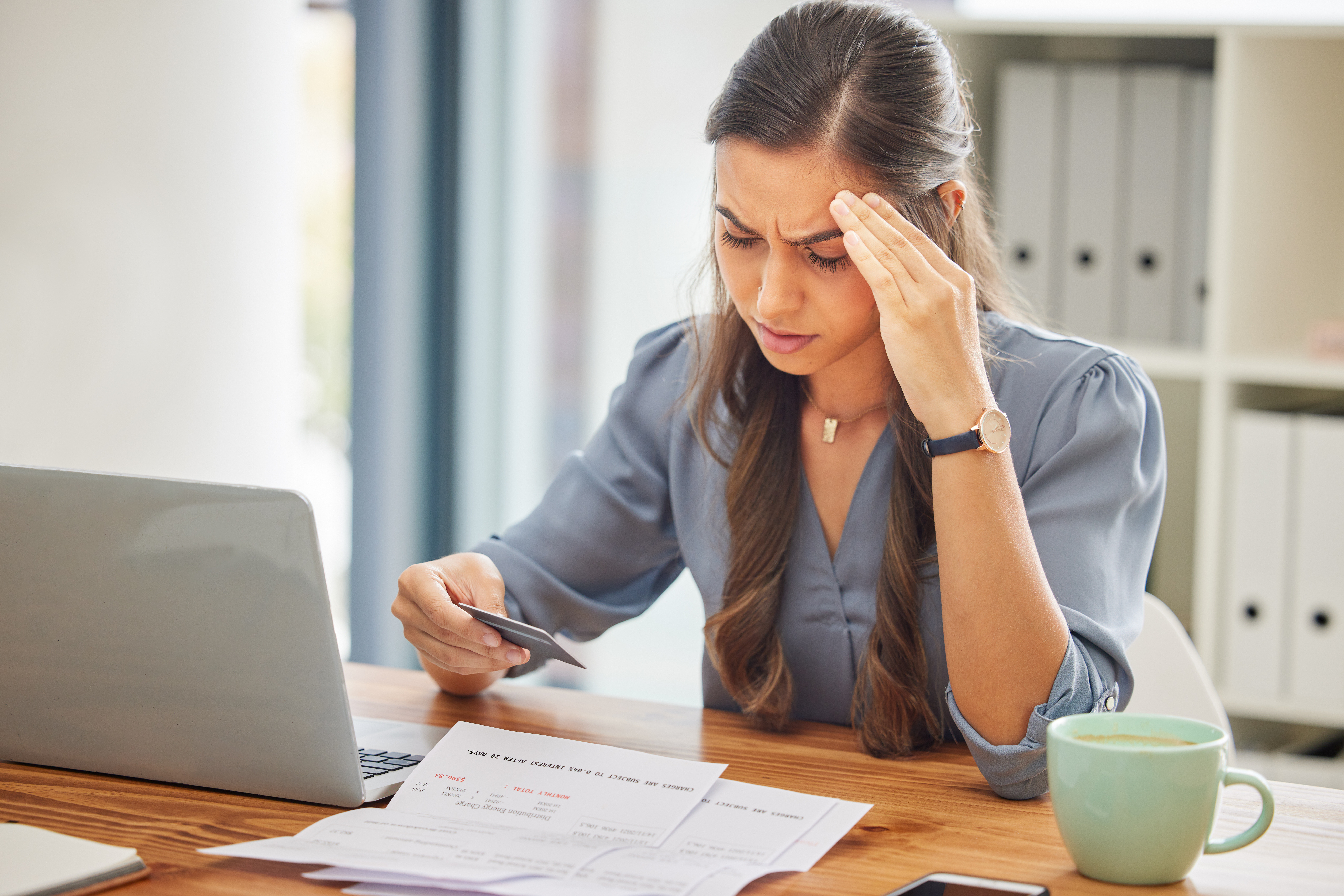
Unclaimed money: Do you own a slice of $1.5 billion?
We’ve all dreamt of winning the lottery but you could already have a tidy sum — a small fortune, even - in your name and not know it.
According to the Australian Securities and Investment Commission (ASIC), there’s about $1.5 billion of unclaimed money just waiting to be returned to its rightful owners. This money may be tied up in forgotten bank accounts, life insurance policies, superannuation, or other financial accounts. If you think you may have some unclaimed cash, it’s worth doing a little digging.
Don’t worry if you’re not sure how to go about it. You don't need to pay for a service or hand your personal data over to an unknown third party. All you need is a bit of time to follow our simple instructions. And, before you know it, you could be in for a windfall. So read on to find out if you're one of the lucky ones with unclaimed money waiting for you.
What type of unclaimed money is out there?
There is a real variety of unclaimed money, especially in heavily populated NSW. This is often because people move and forget to update their records with a bank or company, or neglect to claim low-value life insurance policies, bank accounts, share dividends, bonds or tax refunds.
ASIC has developed a search tool you can use to check whether you may be owed unclaimed money from these sources:
-
- Bank accounts
- Shares in listed companies or ASX depositaries interests (ADIs) - deposits made through clearing houses
- Superannuation funds
- Life insurance policies
- Workers' compensation claims
- Proceeds of sale from deceased estates
How does unclaimed money work?
If a bank account is inactive and no contact has been made with the owner for seven years, the money will be transferred to ASIC as unclaimed money. ASIC then transfers it to the Commonwealth of Australia Consolidated Revenue Fund. This also applies to life insurance policies, bonds and shares that have not had any activity for more than seven years.

The records of these monies are then held by ASIC until they can be reunited with their rightful owners. The good news is, from 1 July 2013 on, your money continues to earn interest while it's being held by ASIC – currently, this rate is 0.0111% per annum according to MoneySmart. As an added bonus, you are not taxed on any interest earned.
The date your claim is approved will be shown in your unclaimed money search record. Then the interest will be calculated from that date to 14 days after your claim is approved. If you're lucky enough to have a large amount of unclaimed money in your name, you could be looking at thousands of dollars worth of interest on top.
If you are entitled to an inheritance, you could be in for an even bigger payday. Former prisoner of war Maria Okinczyc died childless in 2001, leaving $1.07 million, which is yet to be claimed. And there are many more similar cases.
Why don’t I know about my unclaimed money?
There are a few reasons why you may not be aware of unclaimed money. Firstly, it's often difficult to track you down, especially if you've moved house or changed your name.
Secondly, many people assume that if they haven't received any communication from a financial institution in years, there's no point in checking for unclaimed money. They may have forgotten the account exists, failed to update their details after moving interstate or overseas, or deactivated it after closing their last bank account at that institution.
Thirdly, although ASIC regularly publishes details of unclaimed money in the Unclaimed Moneys Gazette, it only lists the financial institutions and not the names of individuals. You need to use their online search tool (see below) or contact them directly if you think there may be unclaimed money waiting for you.
The bottom line is the government doesn’t contact you about money in their keeping - you need to go looking for it.
How do I get access to any unclaimed money?
There are a few ways to find and claim your unclaimed money, depending on where the funds are from.
The most important step to remember is that you need to be able to prove that it's rightfully yours. The Federal Government has a zero-tolerance policy when it comes to fraud or identity theft. They want to make sure all unclaimed money goes back to the rightful person. So you must present some evidence that shows your name, date of birth and address, such as a bank statement or a driver's licence.
You can claim unclaimed superannuation in Australia if you're an Australian permanent resident, even if you don't currently live in the country.
You may also be able to claim unclaimed money from deceased relatives. But you'll need to provide proof of death and evidence that you're an executor or administrator of the estate.
If claiming money for someone else who’s still alive, you need to have power of attorney showing you’re legally allowed to act for that person. You'll also need the necessary documentation and evidence that proves it's rightfully theirs. If not, then there are other ways you may be able to help them access their unclaimed money. For example, if the funds are being held by a financial institution, you could ask them to release the money into your loved one's account or yours, if you’re an authorised payee.

There are a number of services that offer to help you access unclaimed money for a fee. But it is important to note that you don’t need to pay a cent. Don’t be taken advantage of when you can do it all by yourself for nothing by simply following the steps below.
How do I get access to any unclaimed money?
Step 1: Use ASIC’s MoneySmart online search tool. Enter your full name, then take note of your Original Transaction Number (OTN).
Step 2: Confirm the banking institution, insurance company or friendly society’s name. For a complete list of banks, building societies and credit unions authorised to operate in Australia, see the Australian Prudential Regulatory Authority's list of Authorised Deposit-taking Institutions. For insurance, go to the Australian Prudential Regulatory Authority website to find companies listed under general insurance, life insurance, as well as friendly societies and private health insurance.
Step 3: Contact the bank or insurance company and speak to the officer in charge of unclaimed money. They will then instruct you to provide necessary documents such as identification cards and bank statements (for banks). For insurance companies, you may need to present proof that you’re the policy owner.
Step 4: The bank or insurance company will process your claim and will let ASIC know if your money is good to go. The process usually takes 28 days.
Shares and investments
Step 1: Use ASIC’s MoneySmart online search tool. Enter your full name, then take note of your Original Transaction Number (OTN).
Step 2: Complete the applicable claim form. This is the claim form for
-
- An individual (including joint shareholders)
- The director(s) or secretary of a registered company
- A liquidator of a registered company
- A proprietor of a registered business or
- The parent of a minor
This claim form is for
-
- The executor or administrator of a deceased estate
- The trustee of a superannuation fund or trust fund
- Power of attorney (POA) or
- A guardian appointed by the court
Step 3: Send the claim form and required documents, such as proof of identity and proof of ownership, to ASIC.
Step 4: Wait for ASIC to process your claim. It could take up to 28 days.
There are no time limits for accessing unclaimed money. The only thing that will stop you from getting what you’re entitled to is if someone else beats you to it (see below). So don't delay!
What if I can't find my unclaimed money?
If you've tried using ASIC's MoneySmart online search tool but still can't find any trace of unclaimed money you think you might be entitled to, don't worry. Because there are other ways to track it down.
- Check the Australian Taxation Office for lost superannuation by registering for the ATO's online services via myGov.
- Visit your State Government’s website for deceased estates, lost share dividends, salaries and wages, cheques, over-payments, proceeds of sale and others.
- For Medicare benefits, go to Services Australia.
- Check the Fair Work Ombudsman’s website for unclaimed wages.
What are the risks associated with claiming this money?
It's highly possible for someone else to access the unclaimed money before you do. It can be through identity theft – one of the most common scams these days – or your trustee accessing your funds behind your back. This is why it's important not to delay starting the process.
As mentioned earlier, there are also services that will try to take advantage of people who don't know the process for accessing unclaimed money. Some even offer their service for free. However, they will require your personal information to access accounts held under your name. To stay safe, it’s best to stick with government-run websites when searching for unclaimed money.
Inheritance scams are another common risk involved in unclaimed money. An inheritance scam is where someone poses as a lawyer or financial advisor, claiming you have an inheritance from a distant family member. They often sound legitimate and will send you official-looking documents to fill out. Then they may ask for fees to ensure the transfer of your inheritance. Don’t hand over any personal details to someone you don’t know, no matter how convincing the paperwork seems. These scammers will use your details to steal from you or claim money that belongs to you instead.
There also have been recent reports of scammers claiming to be from the Department of Finance who ask you to pay a fee in order to release your unclaimed funds. Again, don't fall victim. The search process we’ve outlined is free and simple.
How can I stay on top of unclaimed money?
The best way is to regularly check ASIC's list of unclaimed money. This will ensure you're up-to-date with any new funds that have been released. And you can claim them as soon as possible.

It's important to remember that unclaimed money can come from a number of different places. So it's worth checking all the websites listed above if you think you have any outstanding funds. ASIC’s list is updated monthly. And there’s no limit as to how often you can check for unclaimed money.
There are a number of websites that invite you to sign up to be notified when you have unclaimed money. However, this is risky. You never know if the details you provide them will be used in legitimate transactions. It’s also pointless to use any paid service when you can do the same for free. Just create a calendar reminder – monthly or quarterly, as you wish – to check the Unclaimed Moneys Gazette.
If you suspect that there has been fraudulent activity in relation to your unclaimed money, contact the Australian Competition and Consumer Commission's Scamwatch. If you’re having trouble getting back your funds, report it immediately or if you think you have been scammed, let us know and we’ll handle your complaint.






